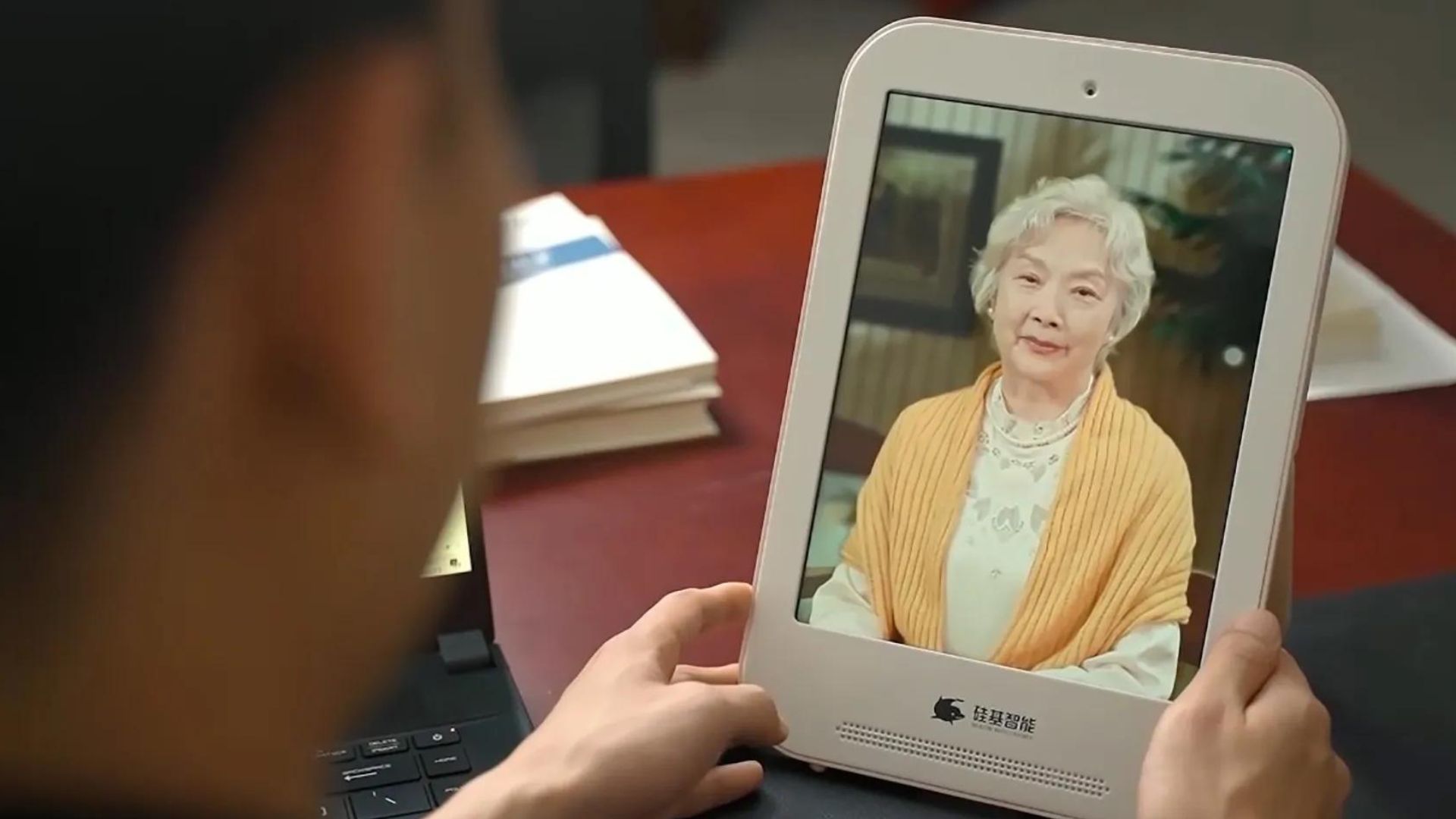AI advancements are paving the way for a fresh opportunity to reconnect with loved ones who have passed away, but experts are raising concerns about the potential psychological impact and ethical challenges linked with these developments.
Researchers from Cambridge University’s Leverhulme Centre for the Future of Intelligence (LCFI) are describing three possible ways that platforms for talking to dead people might be made as part of the developing “digital afterlife industry.”
Dr. Katarzyna Nowaczyk-Basińska, a researcher at LCFI and co-author of the study, said, “Rapid advancements in generative AI mean that nearly anyone with Internet access and some basic know-how can revive a deceased loved one.”
The rise of ‘Deadbots’
Dubbed ‘Deadbots’ or ‘Griefbots,’ these AI chatbots recreate the language patterns and personalities of deceased individuals using their digital footprints. While some companies offer these services to provide a “postmortem presence,” the researchers highlight significant risks if design safety standards are neglected.
These technologies can comfort mourners, but they might also show ads as if they’re from the deceased and make people feel like they are being “stalked by the dead” digitally.
The researchers suggest that designers should ask for permission before creating deadbots, but banning them without permission wouldn’t work. They propose using prompts to ensure the dignity of the departed is respected.
The study described a made-up company called “Paren’t” where a dying woman leaves a deadbot to aid her son in dealing with sadness.
Visual representation of Paren’t app.
At first helpful, the deadbot starts giving confusing responses as it adapts to the child, even proposing a future in-person meeting.
Researchers support “meaningful transperancy” in AI afterlife services and propose age restrictions on deadbots to ensure users recognize they’re interacting with AI.
Unforeseen consequences: The case of “MaNana”
The study outlines another scenario in which a service named ‘MaNana’ allowed the user to create a digital version of their deceased grandmother without her consent. Initially pleased, a grandchild found solace in interacting with the deadbot.
However, after the premium trial ended, the relatives received ads, like food delivery, imitating the voice and mannerisms of their deceased loved one.
 A visualization of a fictional company called MaNana/ Credits: Dr. Tomasz Hollanek
A visualization of a fictional company called MaNana/ Credits: Dr. Tomasz Hollanek
Feeling disrespected, the relative wanted to turn off the deadbot due to their grandmother’s memory, but the service providers haven’t provided a way to do it thoughtfully.
Unwanted digital hauntings by AI-made bots
Dr. Tomasz Hollanek, study co-author and also from Cambridge’s LCFI, stresses the importance of implementing design protocols to prevent disrespectful uses of deadbots.
“Methods and even rituals for retiring deadbots in a dignified way should be considered. This may mean a form of digital funeral, for example, or other types of ceremony depending on the social context,” he said.
“We recommend design protocols that prevent deadbots being utilized in disrespectful ways, such as for advertising or having an active presence on social media.”
Age restrictions and emotional closure
The study proposes age restrictions and termination options for deadbots, stressing the rights of both the recreated and their users.
“It is vital that digital afterlife services consider the rights and consent not just of those they recreate, but those who will have to interact with the simulations,” said Hollanek.
Booming in China
There are platforms like ‘Project December’ and ‘HereAfter’ that recreate the dead using AI, with some emerging in China too.
The demand for AI replicas of deceased loved ones is on the rise in China. Companies like Silicon Intelligence and Super Brain are offering services to recreate digital avatars using photos, videos, and audio recordings, as per a report published by Massachusetts Institute of Technology (MIT).
The cost, once in the thousands, is now within reach for many at just a few hundred dollars, opening the door for more to consider “digital immortality” for their loved ones.
As with all new tech, there are significant ethical and legal matters to consider, such as consent, responsibility, and AI replication limits. Companies like Super Brain and Silicon Intelligence need family members’ permissions to make these digital copies.
Mitigating social and psychological risks
Nowaczyk-Basińska has also emphasized the urgency to mitigate the social and psychological risks of digital immortality, given the rapid advancements in generative AI. “We need to start thinking now about how we mitigate the social and psychological risks of digital immortality, because the technology is already here,” he said.
The study was first published in the journal Philosophy and Technology.
NEWSLETTER
The Blueprint Daily
Stay up-to-date on engineering, tech, space, and science news with The Blueprint.
ABOUT THE EDITOR
Sujita Sinha A versatile writer, Sujita has worked with News Daily 24. When she isn’t writing, you can find her glued to the latest web series and movies.



